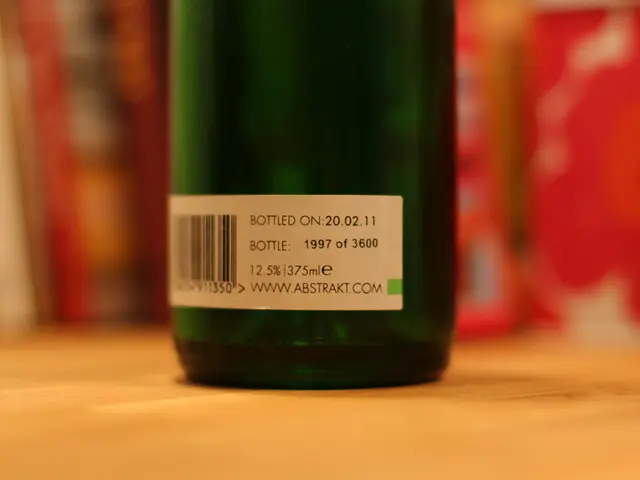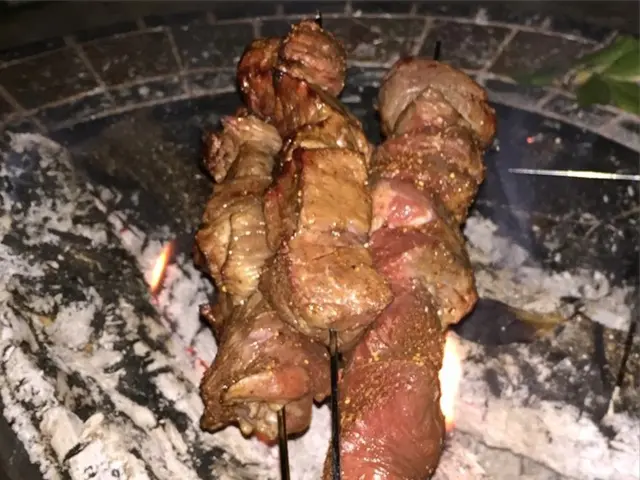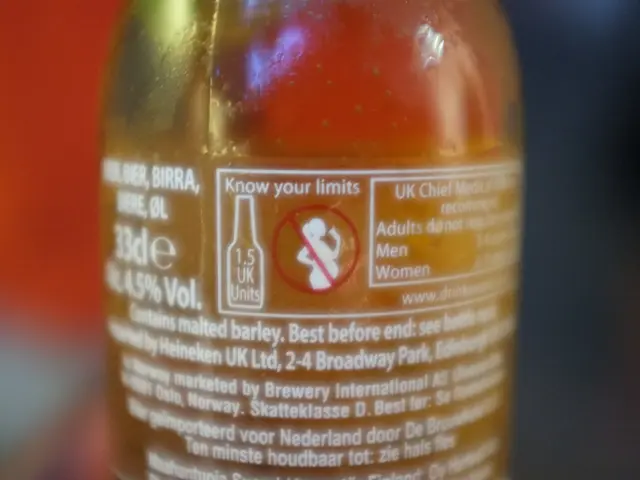Cow stomach fluids as a potential solution for plastic pollution?
Alright, let's dive into the fascinating world of reducing plastic pollution – y'know, the millions of tons of stubborn synthetic waste we generate annually. You might be surprised to learn that scientists believe the guts of our bovine pals could help us tackle this environmental crisis!
That's right, the thinking goes that the digestive microbiomes of cattle may be able to break down certain synthetic polyesters. Imagine that – slurry from slaughterhouses could potentially provide a low-cost solution to reduce plastic pollution. Intrigued? Let's meat the science behind it!
The Environmental Protection Agency (EPA) claims that landfills alone receive tens of millions of tons of plastic waste each year. Synthetic plastics might be cheap and useful, but they're also a pain in the rear when it comes to safe disposal and reuse. So, scientists are on the hunt for eco-friendly alternatives to assist in plastic waste management.
And that's where our ruminant friends come in. A recent study published in Frontiers in Bioengineering and Biotechnology suggests that the natural microbiome in bovine digestive systems might just be the secret weapon we've been looking for!
Researchers from three Austrian institutions – the University of Natural Resources and Life Sciences in Vienna, the Austrian Centre of Industrial Biotechnology, and the University of Innsbruck – banded together to investigate the potential of bovine digestive systems in processing synthetic polyesters.
While it's no walk in the park, we'll wagon through the details in the simplest way possible. You see, some animals like ruminants – like cows and bulls – already consume natural plant polyesters while grazing. These creatures have specialized stomachs for processing hard-to-digest food, and the key enzymes in their rumen interact with water to break down those natural polyesters.
Now, it appears that those same enzymes might also be effective in decomposing other polyesters – like the ones in our beloved plastic waste. But before you go thinking about grabbing a gallon of cow juice to clean up your neighborhood, scientists have a way to go before this method is ready for the big leagues.
Researchers incubated bovine rumen liquid with three common synthetic polyesters used in manufacturing to confirm the hypothesis. The polyesters in question were
- Poly(butylene-adipate-co-terephthalate) (PBAT), commonly used in compostable plastic bags and consumer product packaging
- Poly(ethylene terephthalate) (PET), seen in single-use beverage bottles and synthetic fabrics
- Poly(ethylene furanoate) (PEF), a biobased polyester with a superior renewability profile
The results? An improved polyester decomposition compared to previous studies focusing on isolated enzymes and microorganisms. The scientists believe this impressive result is due to the synergistic interactions between the various elements in the rumen.
But there's still plenty of work to be done before we can conquer plastic pollution with bovine stomach fluids. Future studies should identify the specific microbes and enzymes involved in the synergistic hydrolysis of polyesters and determine their optimal conditions for optimal activity.
While the journey is far from over, the results suggest untapped potential for using bovine rumen fluid in plastic decomposition. Cattle stomachs, it seems, may just hold the key to a cleaner planet – now that's something worth chewing on!
- The potential of bovine digestive systems to aid in plastic waste management, specifically in breaking down certain synthetic polyesters, could have significant implications for health-and-wellness and environmental-science, helping mitigate the adverse effects of plastic pollution on our planet.
- Intriguing findings from a recent study in Frontiers in Bioengineering and Biotechnology hint that digestive microbiomes in cattle, which are known to break down natural plant polyesters during grazing, might also decompose synthetic polyesters like PET, PBAT, and PEF – common materials used in the production of various consumer products and plastic waste.
- As the global climate-change conversation continues to evolve, innovative solutions like leveraging the digestive abilities of ruminants to break down synthetic plastics may contribute to the developing field of fitness-and-exercise and health, further promoting a sustainable, eco-friendly lifestyle.




